This article was co-authored by Alina Lane, DDS and by wikiHow staff writer, Janice Tieperman. Dr. Alina Lane is a Dentist who runs All Smiles Dentistry, a general practice dental office based in New York City. After completing a DDS at the University of Maryland, Dr. Lane completed a year-long clerkship in Implantology at the University of Maryland, where she focused on the advanced restoration of dental implants. She continued her advanced education by completing a General Practice Residency at Woodhull Medical Center, an affiliate of the NYU School of Medicine. She received the Woodhull Medical Center Resident of the Year 2012-2013.
There are 9 references cited in this article, which can be found at the bottom of the page.
This article has been viewed 189,058 times.
Sour candy is a delicious treat, but due to its highly acidic ingredients, it can leave your tongue feeling sore and uncomfortable when you eat too much.[1] While there’s no miracle cure that will instantly get your tongue back to normal, there are several ways that you can ease the discomfort. If you’d prefer to use medicine, try using the recommended dose of over-the-counter benzocaine oral gel. If you’d rather let your tongue heal naturally, there are a few ways you can provide your tongue with some relief.
Steps
Applying Benzocaine Oral Gel
-
1Identify the spot on your tongue that’s hurting the most. Wash your hands and use a clean finger to gently probe your tongue. Try and identify where the acid from the candy affected your tongue most, so you can accurately apply the topical medicine.[2]
- For instance, if you kept the candy in the center of your tongue until it dissolved, that part of your tongue might be the most sore.
-
2Use a swab to dry the sorest part of your tongue. Take a cotton swab and use it to soak up any saliva on the painful areas of your tongue. If you want, feel free to dry off the entire surface—just be sure to focus on the spot where you plan to apply the gel. As you do this, try not to reach too far back in the mouth with the swab, as this might trigger an unwanted gag reflex.[3]
- Some oral gel packages come with swabs or special applicators.
Advertisement -
3Apply the product to your tongue with another Q-tip. Dip a new cotton swab into the bottle of benzocaine oral gel. Use short, gentle dabbing motions to apply a thin coat of gel over the sore area. Don’t apply too thick of a layer, as this product will soak into your tongue gradually.[4]
- You can find this product at most pharmacies.
Did you know? Anyone older than age 2 can use this oral gel. If you have an infant or toddler suffering from tongue pain, talk to a doctor before giving them this medicine.
-
4Let the medicine dissolve over a period of 6 hours. Don’t swallow the medicine—instead, let it soak in your tongue and provide relief. If your tongue is still sore after 6 hours, feel free to apply a thin layer of the gel again. Overall, this medicine can be applied up to 4 times each day.[5]
- If the medicine is swallowed directly, phone a Poison Control Center or medical professional for advice.
Soothing Your Tongue
-
1Place a pinch of baking soda on the sore part of your tongue. Lessen the pain naturally by layering your tongue with less than 1 tsp (4.8 g) of baking soda. Focus on the area that’s inflamed the most, and wait 2-3 minutes for any painful sensations to go away. After that, feel free to spit out the baking soda.[6]
-
2Melt a small chip of ice on your tongue. Take a small piece of ice and set it on the most painful area of your tongue. Don’t chew the ice or try to swallow it—instead, let the chip dissolve on your tongue. While this isn’t a long-lasting solution, you can find some instant relief from tongue discomfort when you use ice.[7]
- Don’t use a huge ice cube for this. Instead, try using a piece of ice that’s close to the size of your injury.
-
3Provide some pain relief by gargling a salt water mixture. Dissolve ½ tsp (3 g) of salt into 0.5 cups (120 mL) of warm water. Swish the solution around your tongue for several seconds before spitting it out.[8] If you’d prefer, you use ½ tsp (3.5 g) of baking soda instead of salt to make the gargling solution.[9]
-
4Reduce your discomfort by taking over-the-counter pain medication (NSAIDs). Use an over-the-counter medication, like ibuprofen or acetaminophen, to treat the pain and inflammation of your sore tongue. Read the bottle to see what the recommended dosage is, and take that exact amount. If the pain persists throughout the day, feel free to take additional doses later on.[10]
Avoiding Additional Irritation
-
1Try not to eat food that’s especially salty, crunchy, or spicy. Keep an eye on your diet over the next several days. While salt and vinegar chips might look tempting, they’ll be very painful for your tongue. You also want to steer away from especially spicy food, in addition to salty, crunchy, and sour snacks.[11]
- While your tongue is sore, stay away from extra acidic foods like pickles and citrus fruit.
-
2Don’t drink hot beverages that could bother your sore tongue. Try altering your routine so you aren’t drinking any hot coffee or tea throughout the day. If you don’t want to give up your favorite drinks, switch to iced varieties instead, like iced coffee and iced tea. If you’re looking for more variety in your drink menu, consider sipping on a smoothie or milkshake.[12]
- Cold drinks might be overwhelming to your sore tongue. If you’re looking to enjoy a glass of water or milk, try drinking it through a straw instead.
-
3Use a soft toothbrush whenever you brush your teeth. Unfortunately, you can’t go on strike from brushing your teeth while your tongue is sore. However, you can make the process a lot more soothing and comfortable by using a soft-bristled toothbrush! If you don’t have this kind of toothbrush on hand, look in the store for ones that are geared towards kids. Use soft, gentle motions as you brush your teeth, especially when going over the tongue area.[13]
- Don’t scrub or irritate your tongue with the brush, as this will only make the pain worse.
-
4Opt for a toothpaste that’s labeled sodium lauryl sulphate (SLS)-free. Select a gentler toothpaste to use while your tongue is sore. If you want to take extra action to protect your tongue, switch to a new toothpaste until the soreness is completely gone.[14]
Did you know? Some people have found that SLS-free toothpaste lessens the mouth sores and ulcers that they get.[15]
Our Most Loved Articles & Quizzes
Things You’ll Need
Applying Benzocaine Oral Gel
- Benzocaine oral gel
- Cotton swabs
Soothing Your Tongue
- ½ tsp (3.5 g) of baking soda
- Ice
- ½ tsp (3 g) of salt
- 0.5 cups (120 mL) of warm water
- NSAIDs (ibuprofen or acetaminophen)
Avoiding Extra Irritations
- Soft toothbrush
- SLS-free toothpaste
References
- ↑ https://www.mndental.org/files/Pucker-Up-5.pdf
- ↑ https://www.drugs.com/cdi/benzocaine-oral-cream-gel-liquid-and-ointment.html
- ↑ https://www.mayoclinic.org/drugs-supplements/anesthetic-local-topical-application-dental-buccal-mucosa-route-gargle/proper-use/drg-20069969
- ↑ https://www.mayoclinic.org/drugs-supplements/anesthetic-local-topical-application-dental-buccal-mucosa-route-gargle/proper-use/drg-20069969
- ↑ https://www.mayoclinic.org/drugs-supplements/anesthetic-local-topical-application-dental-buccal-mucosa-route-gargle/proper-use/drg-20069969
- ↑ https://spoonuniversity.com/how-to/heres-why-your-tongue-is-sore-and-how-to-cure-it
- ↑ https://www.mayoclinic.org/diseases-conditions/canker-sore/diagnosis-treatment/drc-20370620
- ↑ Alina Lane, DDS. Board Certified Dentist. Expert Interview. 21 April 2020.
- ↑ https://www.mayoclinic.org/diseases-conditions/canker-sore/diagnosis-treatment/drc-20370620
- ↑ https://my.clevelandclinic.org/health/drugs/11086-non-steroidal-anti-inflammatory-medicines-nsaids
- ↑ Alina Lane, DDS. Board Certified Dentist. Expert Interview. 21 April 2020.
- ↑ Alina Lane, DDS. Board Certified Dentist. Expert Interview. 21 April 2020.
- ↑ Alina Lane, DDS. Board Certified Dentist. Expert Interview. 21 April 2020.
- ↑ https://www.your.md/condition/tongue-pain/
- ↑ https://www.bbc.co.uk/programmes/articles/4b0zc9YCmpYmM9VHhSZr8wk/should-i-try-sls-free-toothpaste
- ↑ https://www.your.md/condition/tongue-pain/






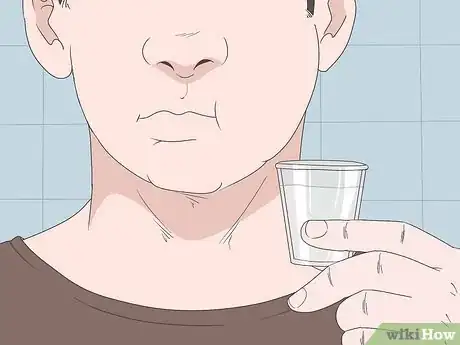













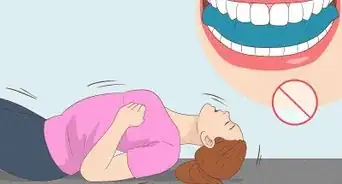

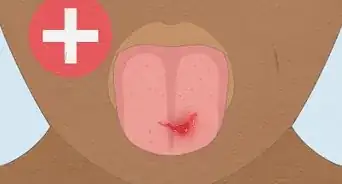
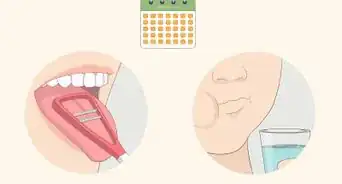


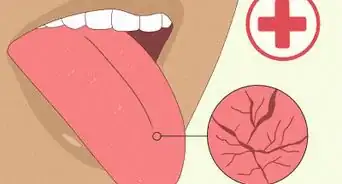




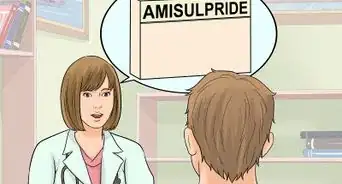












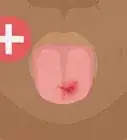





























Medical Disclaimer
The content of this article is not intended to be a substitute for professional medical advice, examination, diagnosis, or treatment. You should always contact your doctor or other qualified healthcare professional before starting, changing, or stopping any kind of health treatment.
Read More...